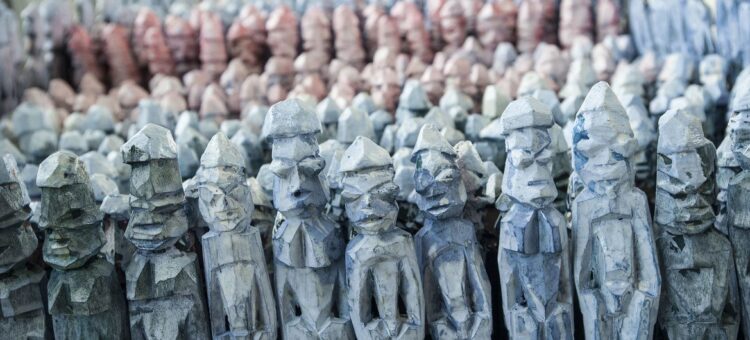[ad_1]
In his message for the day, the UN Secretary-General António Guterres, the diverse heritage and culture of people of African descent and their enormous contribution to our societies throughout history.
“Yet, around the world, millions of people of African descent are still subject to racism and deeply entrenched and systemic racial discrimination. That is why the United Nations continues to call for the full respect of their human rights and fundamental freedoms, for redress when these are violated, and for formal apologies and reparations for the egregious wrongs of slavery and colonialism.”
Dominique Day is a human rights lawyer, and the chairperson of the
The rights experts sat down with UN News, to talk about their experiences of racism, and why there needs to be a wider acceptance that today’s global economy was built on the oppression of Black people.
UN News
Dominique Day
UN News
Dominique Day
For those of us who work on racism, we have an opportunity to do advocacy and awareness raising. For example, on a country visit, I will talk about racism I may have experienced in that same country, but may not have confronted as directly because my sanity, my equilibrium matters.
This everyday casual racism has actually been so interwoven into our society, we not only fail to see it, but there’s a really active culture of denial that operates transnationally.
UN News
Dominique Day
UN News
Verene Shepherd
The Mayor of London takes it seriously: I recently gave a lecture there on the subject, my fifth, at City Hall, which was very well attended.
But the first thing that confronted me was that I was finger-printed as I came through immigration, as if I’m a criminal. I really was shattered. But then I said to myself, there are people who need to hear what I have to say tonight, and so, oppressors are not going to stop me from doing what I have to do.
It was sobering because it said to me, no black person is exempt from racism and from racial profiling, and I think we have to be realistic about that.
UN News
Dominique Day
Critical Race Theory says, let’s look at what has created the world we’re living in today, let’s take a critical view of history. It actually shouldn’t be a threat.
We’re trying to offer a rigorous and honest look at the world as it exists today, and when we talk about things like the Slave Trade, we’re talking about a moment in history, a moment in global history where transnational relationships were being developed, where the market economy and credit economy were being birthed. And all of these fancy economic terms we use today were being developed using black bodies as collateral, as subjects of trade, both in the financial and agricultural markets.
UN News
Dominique Day
I’m not suggesting that racial justice work will upset that, but perhaps the awareness of that can motivate activities to actually right what’s been wrong,
Verene Shepherd
They think that it’s better to have a generation of people who don’t know about this stuff. Then we don’t have to feel guilty about the past.
And speaking about the Caribbean region, there is shame about the past, which too often fills the place that should be held by knowledge.
We need to break the bonds of shame that some people feel about the past, and use knowledge as liberation.
UN News
Verene Shepherd
If you live in a privileged society, if you live in a in a former colonial power and you compare the social infrastructure in that country to the social infrastructure in the South, and when you connect the dots, you realize that you are benefiting from the legacies of the suffering of my ancestors, that’s just how it is.
You can’t say it has nothing to do with me, whilst benefiting from a good education system, a good health system, good infrastructure. Some benefited from the inheritance, and other people, who got nothing at the time of emancipation or independence, continue to try to make do with little.
That is why we see so many universities and religious institutions in Britain studying their role, and how they benefited from the transatlantic trafficking in enslaved Africans.
Dominique Day
We are all educated into it. We get benefits for reinforcing it, and it’s also tacitly reinforced in our media and our education and in our intimate lives. That reality is something we need to confront.
[ad_2]



